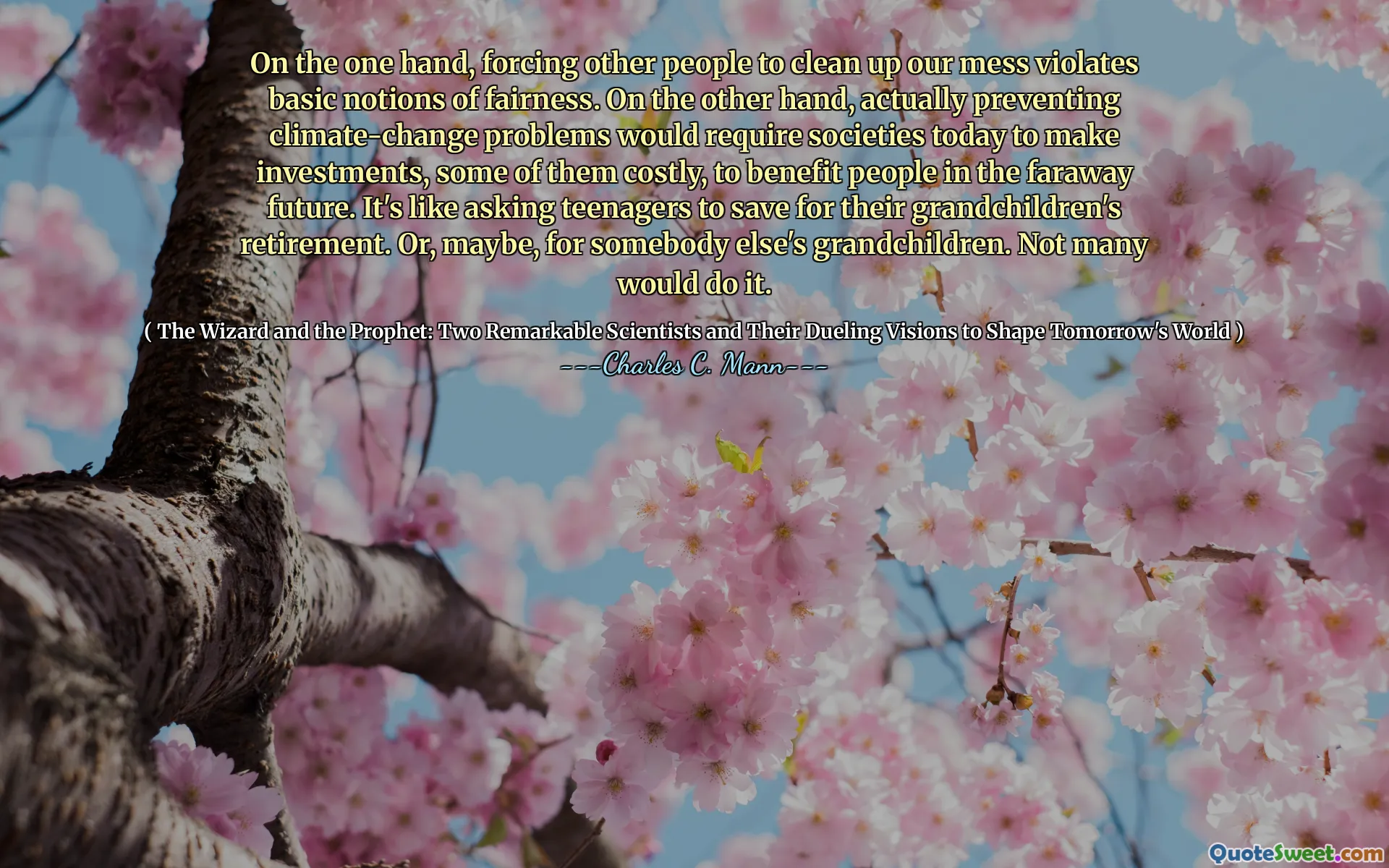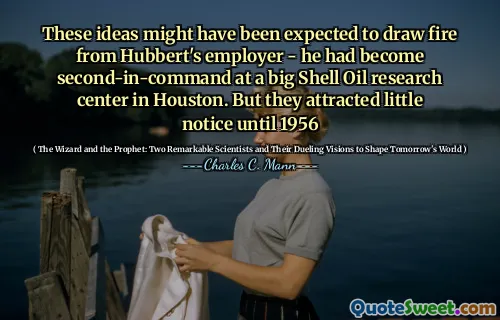
On the one hand, forcing other people to clean up our mess violates basic notions of fairness. On the other hand, actually preventing climate-change problems would require societies today to make investments, some of them costly, to benefit people in the faraway future. It's like asking teenagers to save for their grandchildren's retirement. Or, maybe, for somebody else's grandchildren. Not many would do it.
📖 Charles C. Mann
This quote deeply resonates with the fundamental ethical and practical dilemma that humanity currently faces regarding climate change. It articulates the challenge of balancing fairness and responsibility across generations—a challenge that is not only environmental but also moral and social. The author astutely identifies how current generations benefit enormously without bearing the full costs of environmental degradation while future generations will suffer the consequences. The comparison to teenagers saving for grandchildren's retirement poignantly underscores the difficulty of motivating people to make sacrifices for benefits they will never personally enjoy. It reveals the intrinsic human tendency toward myopia—prioritizing immediate gratification over long-term wellbeing.
Moreover, this passage reflects on the collective action problem: the society as a whole must bear significant costs now to avert a climate crisis, but the benefits will primarily accrue decades or even centuries later. This temporal disconnect creates a profound challenge for policy-making and international cooperation. It presses upon us the importance of developing new frameworks for intergenerational justice, where present-day decisions adequately account for future lives. This requires not only economic investment but cultural shift and political will.
In conclusion, the quote calls attention to the urgency of embracing responsibility that transcends fairness toward present-day convenience. It challenges us to rethink our ethical commitments and to wake up to a shared, long-term vision for sustaining our planet—not just for ourselves but for all generations to come.







